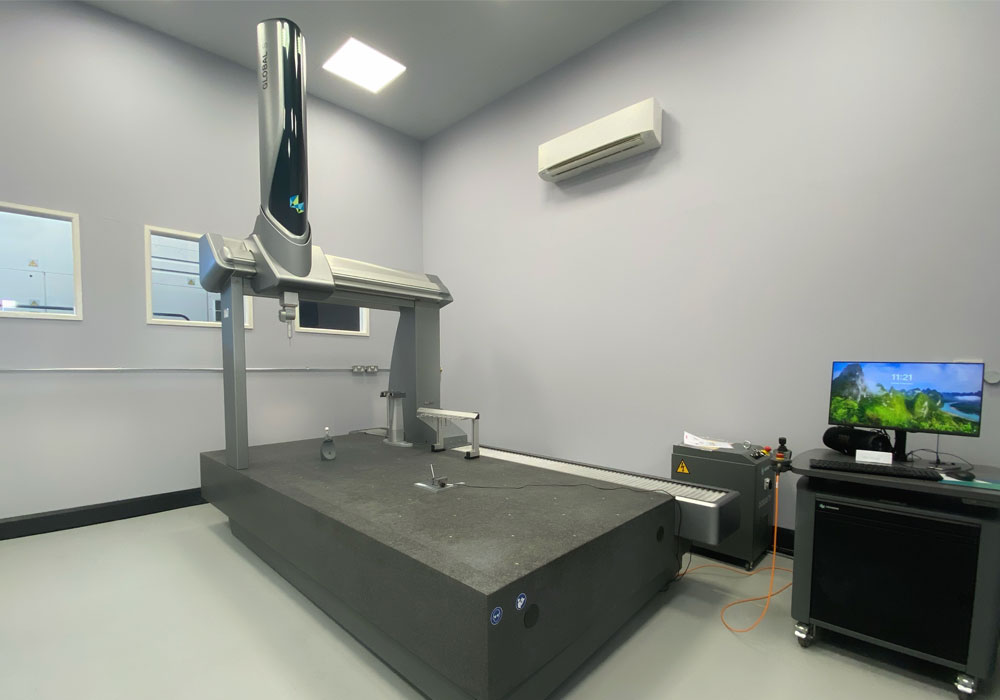To Support Value Stream Growth Middlesex have invested in two dedicated Co-ordinate Measurement Machines (CMM). Both are made by Hexagon, a brand very well known in aviation, with customers including Airbus, Boeing and Rolls-Royce. Indeed, Hexagon is a familiar name to us here; we already use their Edgecam and Javelin software.
Each CMM has been positioned within a value stream, with the objective to reduce inspection time and production bottlenecks. The first, a Global S Chrome 7.10.7, is now within our Aluminium Prismatic (AP) area. The second, a Hexagon Global S Chrome 12.22.10 has been positioned in our Large Mill Turn (LMT) area. This reduces production bottlenecks caused by downtime for the existing CMM to process different pieces of work in progress, making an important, and potentially huge – contribution to production efficiency.
The new machines will also play a significant role in conforming to First Article Inspection This is where an item is inspected when it is produced for the first time, or when a change in an aspect of its production changes. FAI is vital in ensuring specifications and standards are maintained throughout a supply chain – but this can also mean a lot of hours spent completing paperwork to what is known as the AS9102 standard. The new machines help to automate this by outputting their results into a AS9102 format – saving us around 141 days in resources lost to compiling the information every year.
As both CMM units sit within production areas, they will continue to be used by staff making the components. To facilitate familiarity both machines use a simple interface, making them fast to learn which will further speedup their deployment. It actually means they can potentially be used by anyone on the shop floor, which would make the inspection process more flexible. This does not, however, come at the expense of reduced oversight; The machines are cloud enabled, making monitoring of them by quality staff straightforward. Similarly, programming each machine to undertake measurement of components is significantly easier too; software evolves fast and with our new machines we can be up and running in nearly two-thirds of the time our old machine would require.
Of course, the speed at which automating measurement of components is going to be a major factor. The new machines are easily able to reduce inspection time by half when compared to our previous CMM unit – again making a real impact on potential bottlenecks on our workflow.
But higher speed doesn’t necessarily come at the expense of more energy. For example, the new machines will continue to use compressed air to undertake certain finite measurements, but cut down its use by 25%. That equates to less loading on our existing air compressor installation, and thus a healthy reduction in energy consumption.
The impact of the machines, which were commissioned in September, has been immediate. Workflows are much smoother, with disruption caused by machine downtime massively reduced and throughput far higher. The result is a marked improvement in product delivery, and further builds our ability to meet the ever-changing needs of our customers. And looking ahead, the ability to integrate the machines with our existing Javelin and Edgecam software as well as potential purchase of other solutions, puts us well-placed to embrace the opportunities of Industry 4.0.

